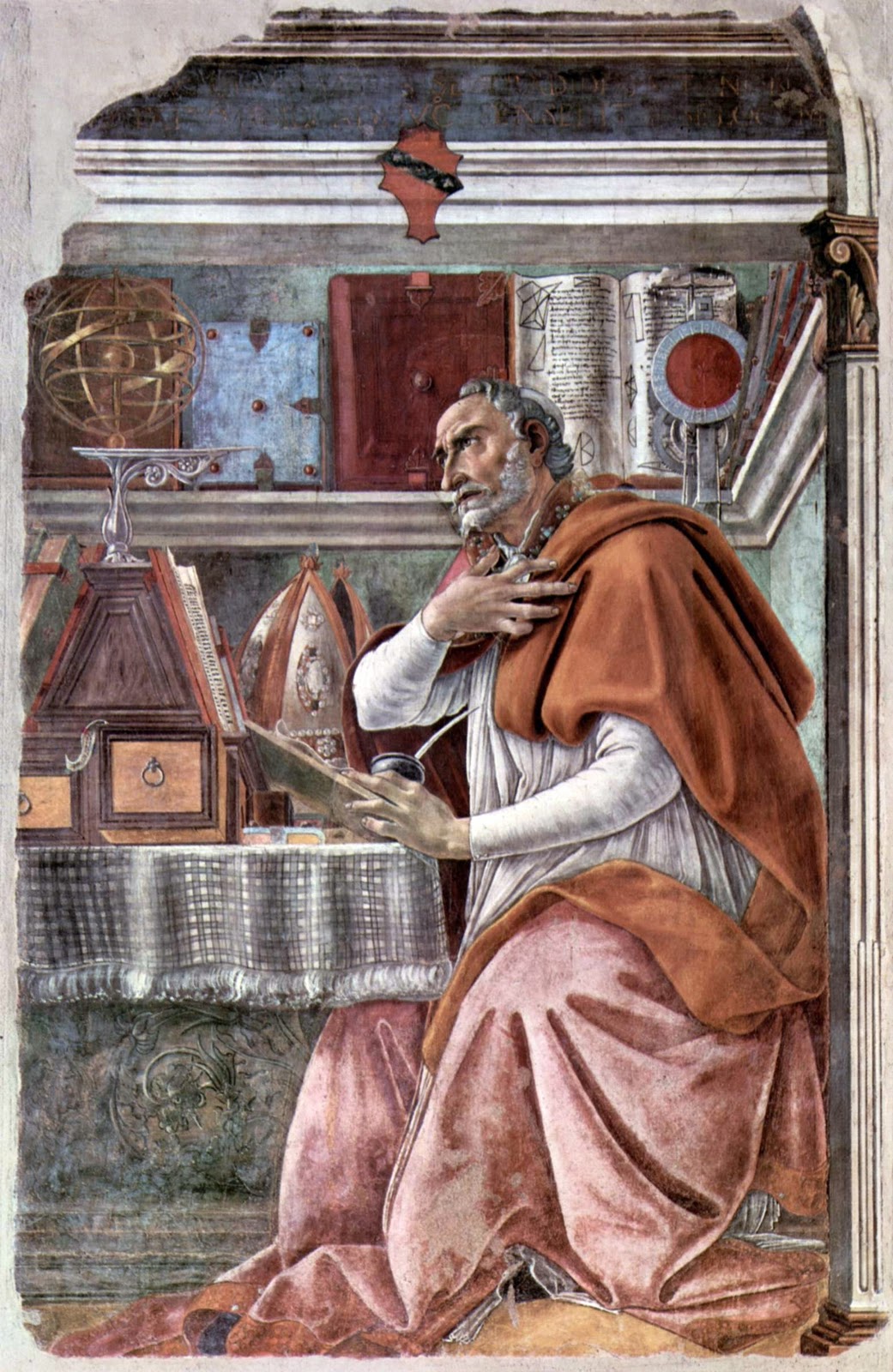
Christians sometimes are puzzled as to what the term “Trinity” means, since it is a word that doesn’t itself show up in Scripture. Even though the word itself isn’t in the Bible, it is an attempt to do justice to the reality of God that we do see in Scripture. The term itself (Trinitas) is a combination of two Latin words, unitas, which means “unity,” and trias, which means “three.” These two parts capture well the two basic biblical principles that the word “Trinity” is meant to convey: the oneness of God (i.e., unity), and the threeness of God (i.e., the distinction between Father, Son, and Spirit).
Augustine, the fifth-century bishop of Hippo who wrote one of the most extended and profound treatments of the Trinity, began his work by laying out these two principles as starting points for understanding this mysterious reality:
“According to the scriptures Father and Son and Holy Spirit [are] . . . a divine unity; and therefore there are not three gods but one God; although indeed the Father has begotten the Son, and therefore he who is the Father is not the Son; and the Son is begotten by the Father, and therefore he who is the Son is not the Father; and the Holy Spirit is neither the Father nor the Son, but only the Spirit of the Father and of the Son, himself coequal to the Father and the Son, and belonging to the threefold unity.”
The first point Augustine makes has to do with the divine unity (unitas). Father, Son, and Spirit are all divine, and yet are not three gods, but one God. There are ample biblical passages that support this idea. No one would dispute that the Father is called “God,” and this title is given to the Son, Jesus Christ as well (see John 1:1). The Spirit is less often explicitly called “God,” but there are plenty of passages that point in that direction. For example, Jesus told his disciples to baptize new Christians in the “name of the Father, of the Son, and of the Holy Spirit” (Matthew 28:29-20). If the Spirit were not God, and were merely a creature like us, it would be very unlikely for Him to be included in this list alongside the Father and Son.
However, Deuteronomy 6:4 tells us that “God is one,” indicating that we should not think of Father, Son, and Spirit as three separate and distinct “gods.” So this is Augustine’s first point and we find it throughout Scripture: Father, Son, and Spirit are all God, and yet there is only one God.
At this point we are faced with an apparent conundrum that we might be tempted to solve by saying that the Father, Son, and Spirit are really just three “names” or “manifestations” of the one God, such that there is no real distinction between them. Here Augustine’s second point comes into play by emphasizing the threeness of God (trias). He says the Father is not the Son, the Son is not the Spirit, and the Spirit is not the Father. The three truly are distinct from one another. A clear biblical example of this is the baptism of Jesus. The Father speaks from heaven calling Jesus his Son, while the Spirit comes upon Jesus like a dove. All three are present and acting simultaneously, and so are truly distinct from one another, albeit without being divided into three separate gods.
If at this point you’re still wondering how to hold these two ideas together then don’t worry. That means that you’ve actually gotten the point! Scripture presents us with both these truths so we must affirm them both even if there is an ultimate mystery in terms of how to reconcile them. It is this biblical mystery of unity and threeness that the term Trinity is meant to capture.
One mild point (especially since you brought up John 1:1) with the statement, “No one would dispute that the Father is called ‘God,’ and this title is given to the Son, Jesus Christ as well,” is that JWs render the passage pertaining to Christ as “a God.” Also, Mormon’s–from what I’ve gathered thus far–while happy to include Christ as God, they see Him as very distinct and different from God… making Him only one in purpose with God the Father. So… even when people don’t dispute the statement, their interpretation of the passage leads to a very different idea. Which makes sense, since they tend not to be trinitarian [smile].
Just tossing it out there, for what it’s worth.
~Luke
Mormon’s? [sigh] Typos. Gotta love ’em.
Matt, the second person of the God whom John introduces as the Eternal Logos (John 1:1-3) was not begotten by God. The human being identified as Jesus, God in the flesh, (John 1:14) was begotten by the Father. The relationship of Father and Son between the first and second persons of the Godhead did not exist until the Eternal Logos came in human flesh.